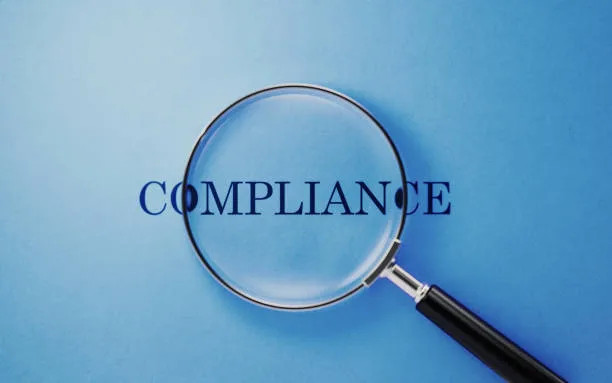
Due to technological advancements and its accessibility to counterfeit entities, businesses struggle to regulate corporate screening operations. There is no doubt that success without challenges is just a myth, and the same principle applies to the corporate sector. For this reason, approximately $11.8 trillion in outstanding corporate debt was recorded in 2023 in the United States.
To reduce the intensity of failed business partnerships, organizations are required to adhere to corporate compliance programs. These programs emphasize that corporations follow ethical business guidelines in order to ensure transparency and security in different sectors. This blog highlights the importance of corporate compliance and its influence on the optimization of global business functions.
Corporate Compliance Solutions – The Role of BOI Reporting
Corporate compliance is a strategic business approach that stresses organizations to adhere to strict regulatory guidelines and ethical business standards. These compliance programs are important for various sectors as they govern transparent and secure business operations with various stakeholders and ultimate beneficial owners. Business verification reduces overall organizational abnormalities while ensuring a positive corporate image. Additionally, Beneficial Ownership Information (BOI) reporting plays a crucial role in corporate compliance. BOI reporting requires businesses to thoroughly analyze the risk profiles and financial patterns of individuals who run and operate the major corporate activities.
The ultimate aim of these reporting schedules is to counter illegal business operations and combat scams, such as money laundering and related corporate scams. BOI reporting penalizes corporations that fail to comply with legal corporate compliance programs.
Central Areas of Concern for Corporate Regulations
A company’s corporate compliance objectives must align effectively with various laws to stimulate transparent business practices. Some of these critical areas of concern are:
- Corporate compliance puts a strong emphasis on adherence to the Foreign Corrupt Practices Act (FCPA), which restricts corporations from engaging in bribery and other activities leading to financial discrepancies.
- Under the corporate compliance programs, companies are prohibited from conducting any anti-competitive operation that avoids the anti-trust laws.
- All known business entities involved in security trading are required to adhere to the Securities and Exchange Commission (SEC) regulations to promote secure corporate practices.
Corporate Due Diligence – Understanding Key Laws and Regulations
In regard to corporate compliance procedures, businesses must ensure adherence to various laws and regulations to optimize organizational transparency. Some of the most critical corporate compliance regulatory laws require a brief overview to understand their influence.
One of the most critical corporate due diligence regulations is the Foreign Corrupt Practices Act (FCPA). This act was specifically formulated for United States companies to ensure anti-corrupt activities among the businesses. This act is backed by the anti-bribery clause, which actively forbids the use of any channel that is used for unlawful operations. Additionally, the Sarbanes-Oxley Act (SOX) was formulated to ensure greater protection for investors during new business partnerships. This act emphasizes the analysis of corporate executive’s financial statements and the evaluation of their internal controls.
Organizational Risks Associated with Non-Compliant Corporate Screening
The reason behind the implementation of enhanced corporate compliance operations is the protection of legitimate businesses from unverified and risky corporations. Therefore, effective business verification and corporate compliance solutions reduce the following risks in the long-run:
- Initiation of a business relationship with an unlicensed and unverified company can disrupt the company’s image and reputation. Therefore, businesses are required to ensure compliance with effective and authentic corporate compliance regulations to reduce the intensity of reputational scams.
- This regulatory compliance module stresses businesses to conduct extensive assessments of the client’s past financial patterns and investment operations. Additionally, examiners are required to lookout for any bankruptcy and bribery operations associated with various business entities.
- Corporate compliance plays a crucial role in mitigating legal risks as it prevents engagement with unverified business entities and high-profile individuals who are likely to be involved in criminal activities.
Significance of Enhanced Corporate Compliance Procedures
Corporate compliance plays a crucial role in optimizing business stability. Adherence to these rules stimulates transparency and accountability, leading to a reduced number of corporate scams and related financial scams. Corporate compliance solutions help organizations reduce legal penalties and fines as they promote regulatory checks during new client screening and onboarding operations.
Moreover, the enhanced public perception of a company plays a crucial role in boosting the company’s success and growth. By overcoming the reputational and financial risks, corporate compliance solutions boost the overall employee retention rates as well.
Wrapping It Up
Corporate compliance is an essential component of the Know Your Business (KYB) checks. These regulations ensure business protection from unverified and illegal entities that are involved in corporate scams and financial scams. The adherence to the corporate compliance checks enhances the overall company stability in the business network, allowing legitimate entities to build enhanced relationships with them. Therefore, businesses must ensure the implementation of corporate due diligence during the new client onboarding process to ensure the optimization of organizational activities and stimulate the overall company reputation.
